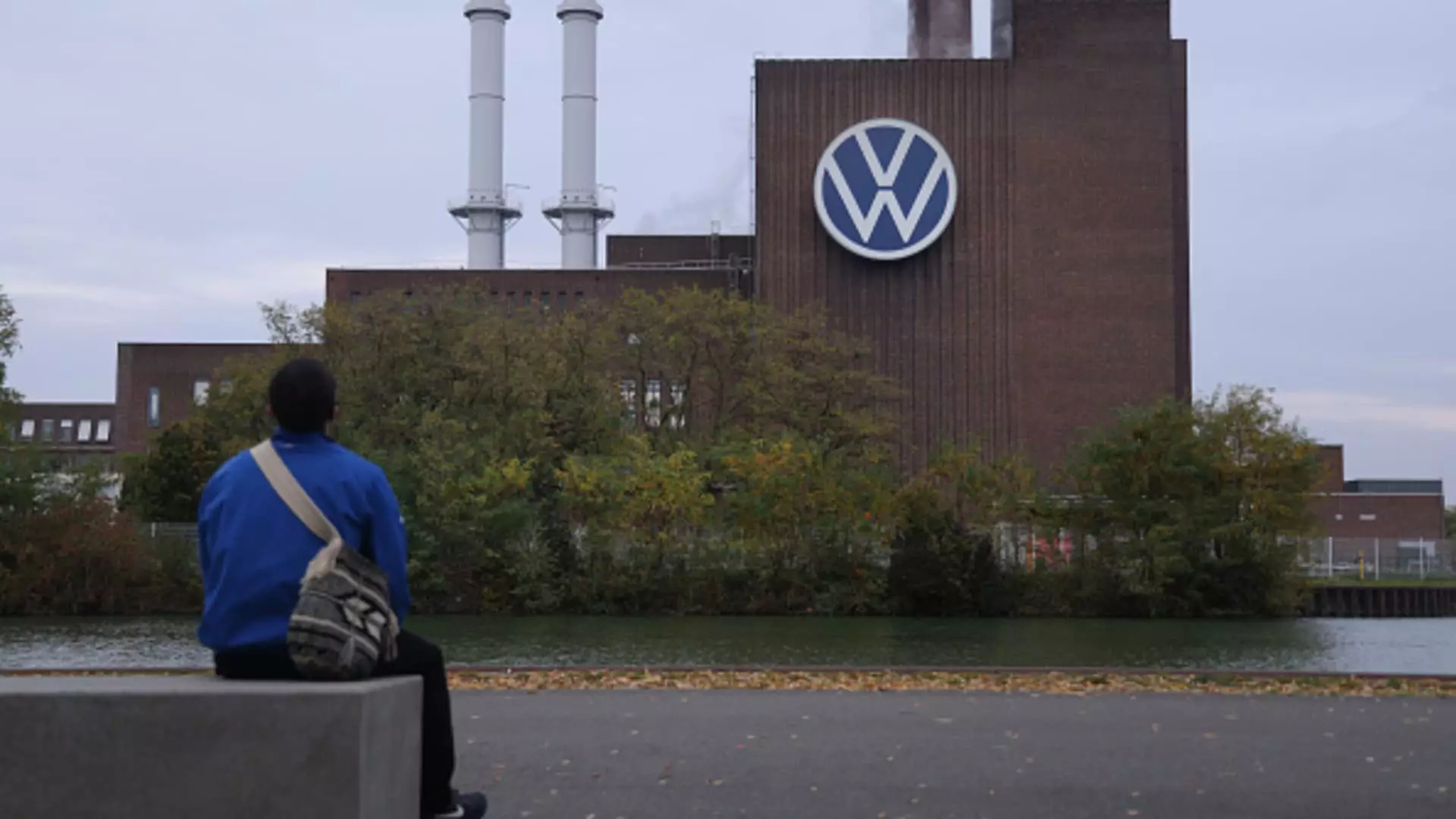The automotive industry, a cornerstone of the European economy, is facing unprecedented challenges as President-elect Donald Trump sets his sights on imposing sweeping tariffs. His declaration to turn established German auto manufacturers into U.S. counterparts raises significant concerns, particularly for Germany’s beleaguered automotive sector. Trump’s remarks during his campaign, where he described tariffs as “one of the most beautiful words I’ve ever heard,” signal a shift towards protectionism that could disrupt the delicate balance of global trade, especially in the auto industry.
The prospect of imposed tariffs on automotive imports from Europe, though not initially articulated in Trump’s agenda, looms large for EU policymakers. The fragile state of Germany’s automotive giants—Volkswagen, BMW, and Mercedes-Benz—creates an atmosphere of trepidation. These companies have recently issued profit warnings due to economic weaknesses, particularly in China, the largest automotive market globally. The timing of Trump’s tariff chatter could not be worse for these manufacturers who are already grappling with sluggish demand.
The Economic Ripple Effect
As the largest exporter of passenger vehicles to the U.S., Germany contributes approximately €23 billion to the U.S. economy through automotive exports. This accounts for 15% of Germany’s total exports to the United States, thus rendering the automotive sector critical to the country’s economic health. According to Rico Luman, a senior economist at ING, the ramifications of Trump’s proposed tariffs would exacerbate an already challenging situation. The auto industry serves as the heart of Bavaria’s manufacturing landscape, with its influences extending to related sectors such as steel and chemicals. Therefore, implementation of tariffs would not only threaten automotive giants but could also destabilize the broader supply chain, leading to widespread economic ramifications.
Moreover, analysts and economists appear to be divided over the significance of Trump’s campaigning rhetoric. While some view this as mere posturing, the cumulative pressures of additional tariffs would likely affect the global auto industry. Michael Robinet from S&P Global Mobility points out the challenges posed by near full employment rates in the U.S. An increase in domestic production in this climate would be challenging, pressing automakers to rethink their strategies.
Though the exact terms of Trump’s tariffs remain unclear, the prospect of blanket duties on foreign goods, including a suggested 10% to 20% tariff, sends ripples of uncertainty through the industry. Major automakers have begun to strategize in light of potential increases in import costs. For instance, while Volkswagen maintains that over 90% of their vehicles in the U.S. are produced on domestic soil, the uncertainty surrounding these tariffs complicates their existing trade agreements, particularly the USMCA.
Conversely, companies like Mercedes-Benz emphasize their significant investments and job creation within the U.S. They hope for constructive dialogues with the new administration to navigate these potential tariffs. However, companies like BMW have declined to comment on future tariff threats, signaling a degree of apprehension about publicly voicing dissent against the incoming administration.
The market’s reaction to the impending tariff threats has been palpable; shares of both Volkswagen and BMW have dropped approximately 23% year-to-date, while Mercedes-Benz sees a decline close to 13%. Industry insiders indicate that these shifts reflect broader concerns regarding market stability in the face of increasing tariffs. Julia Poliscanova, an advocate for sustainable transportation, stresses the need for Europe to remain resilient. She notes that while immediate impacts may adversely affect German manufacturers, Europe has the potential to use this moment to advance in clean technology and electric vehicle (EV) production, potentially leaving the U.S. behind if it chooses to dig deeper into protectionism.
While the looming threat of tariffs poses significant challenges for the European automotive sector, it also presents an opportunity for the EU to strengthen its position in the global market. The delicate interplay between protectionist policies and the realities of international trade necessitates strategic foresight from European automakers. It is essential to understand that the evolution of the global auto industry may hinge on how well firms can adapt to changing political landscapes while also striving towards sustainability and innovation. Europe’s path forward requires resilience and an unwavering commitment to its industrial interests, regardless of the winds of protectionism blowing from across the Atlantic.

